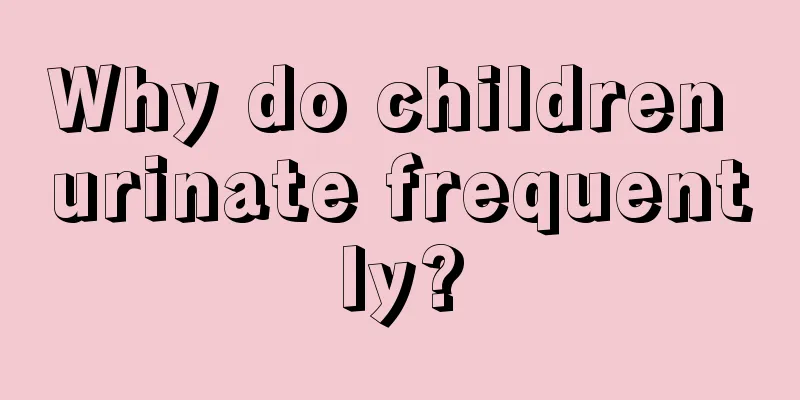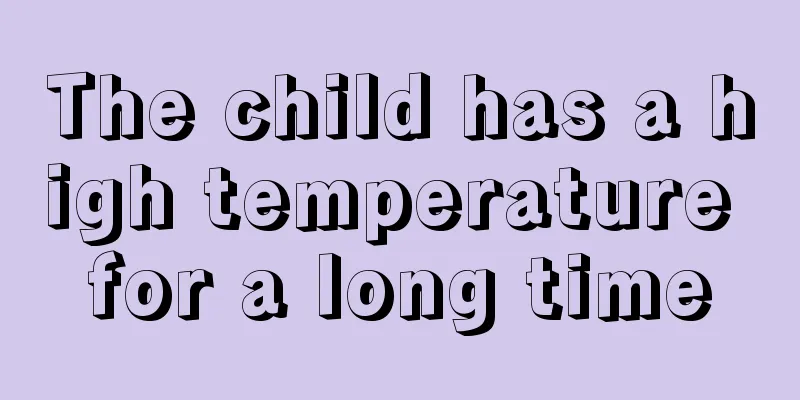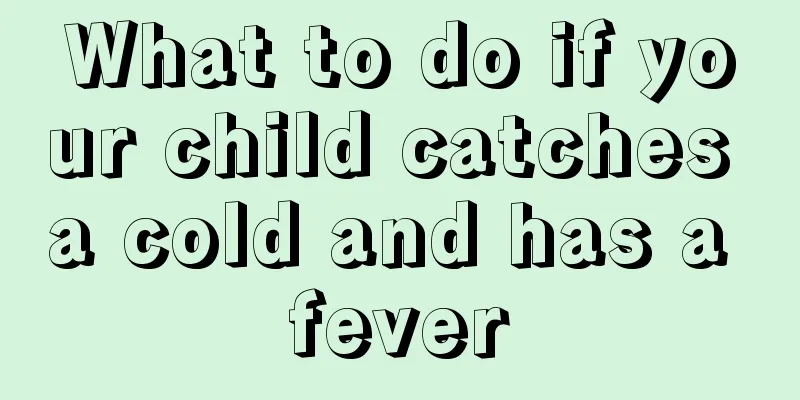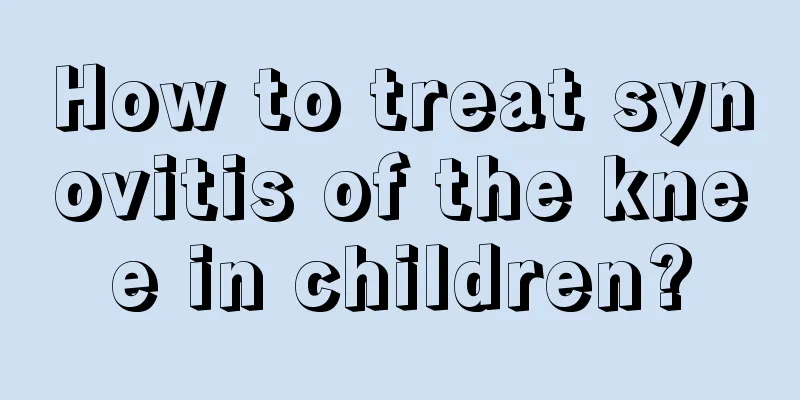What are the causes of abdominal pain and vomiting in children?
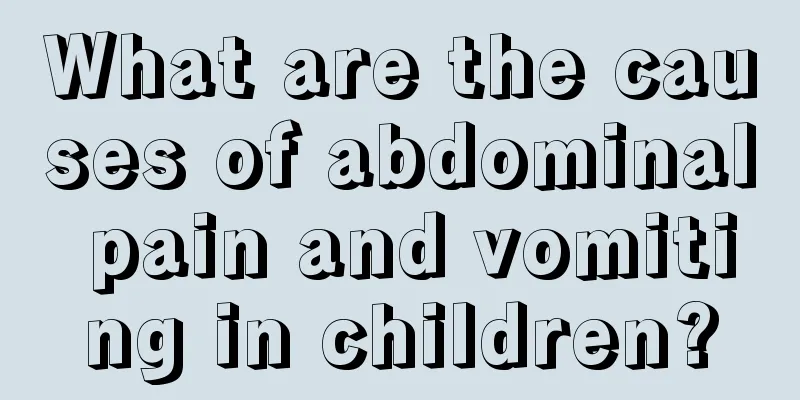
|
In daily life, some children often suffer from abdominal pain and vomiting, which makes parents very worried. So, what is the cause of abdominal pain and vomiting in children? If your children often experience abdominal pain and vomiting, it is recommended that you first learn about the causes of the abdominal pain and vomiting, and then treat them under the guidance of a doctor in combination with daily conditioning. Possible causes of recurrent abdominal pain and vomiting in children 1. Indigestion Abdominal pain caused by indigestion is most common in young children. This pain often comes in waves, without any tension in the abdominal muscles, and the stomach feels soft. This type of abdominal pain is usually accompanied by symptoms such as thick and greasy tongue coating and loss of appetite. Doctor's advice: Parents do not need to be overly nervous about this type of abdominal pain accompanied by vomiting. They should just pay attention to adjusting their children's diet. The amount and frequency of daily meals should be regular, do not overeat, and eat more vegetables and fruits. If your symptoms are most severe, you may need medication. 2. Upper respiratory tract infection This is related to mesenteric lymphadenitis caused by infection, so parents don't need to panic. Symptoms: When infants and young children catch a cold and have a fever, they sometimes have not only sore throat and runny nose, but also abdominal symptoms such as abdominal pain and vomiting. There is also a gastrointestinal cold, which is mainly characterized by abdominal pain, diarrhea, and vomiting. As long as the cold is controlled, the symptoms will disappear. Doctor's advice: This type of abdominal pain is generally mild and can be effectively treated with a hot water bottle for external application. 3. Spastic intestinal disease The autonomic nervous system regulation function of some infants and young children has not yet fully developed. Once the function is disordered, the excitability of the vagus nerve increases, the intestinal peristalsis loses its normal rhythm, the intestinal wall muscles will spasm, leading to intestinal colic, sometimes accompanied by nausea and vomiting. Symptoms: The pain has no obvious relationship with eating or activity, often occurs suddenly and disappears quickly, with no regularity. The abdominal pain is mostly located around the umbilicus. Abdominal examination reveals only a slight sense of tension, active bowel sounds, no fixed tenderness, and no obvious tenderness around the umbilicus. This type of children often have symptoms of autonomic nervous system disorders, such as drooling, nocturnal teeth grinding, excessive sweating or enuresis. Doctor's advice: No special treatment is required. Local hot compress can be applied during an attack, and symptomatic treatment such as antispasmodics and analgesia can be given as appropriate. 4. Intestinal Ascariasis Intestinal ascariasis can cause dull abdominal pain in infants and young children. Symptoms: The pain is not fixed in location, and is accompanied by symptoms such as weight loss, malnutrition and anemia. When ascaris enters the bile duct, severe colic under the right upper ribs will occur, the face will turn pale, and even shock may occur. Doctor's advice: If you suspect your child has intestinal parasites, check his stool. If worm eggs are found in the stool, comprehensive treatments such as deworming, sedation, and anti-allergy treatments should be carried out in a timely manner. The main thing for prevention is to develop a good habit of washing hands before meals and after going to the toilet. 5. Colon allergy Infants and young children who are prone to colon allergies generally tend to be constipated. Because the gastrocolic reflex can cause a strong sense of urge to defecate, the tense spasm of the colon causes food residues to accumulate in the colon, leading to colon expansion, which in turn causes abdominal pain. Symptoms: The degree of abdominal pain varies from person to person. Some people may feel abdominal discomfort, while others may feel dull pain or even cramps. Abdominal pain often occurs in the early morning when waking up or before defecation, sometimes shortly after eating, and can last for minutes or hours, and may be accompanied by symptoms such as headache, dizziness, pale complexion, sweating, and vomiting. Doctor's advice: No special treatment is required. Local hot compress can be applied during an attack, and symptomatic treatment such as sedation and antispasmodic can be given as appropriate. 6. Constipation Some infants and young children have developed serious picky eating habits due to long-term pampering. They usually only eat meat and hardly touch vegetables. Because the large amount of constipation feces accumulated in the colon irritates the proximal intestinal wall muscles, it causes strong contractions and creates high pressure in the colon. Or the proximal colon may be dilated due to gas and fecal matter, inducing paroxysmal abdominal pain. During the interval, the intestinal wall muscles relax, so the abdominal pain is relieved. Symptoms: Bowel movements are often only once every 3 to 5 days, or even several days. Doctors recommend: For those whose condition is caused by constipation, correct your picky eating habits, eat more vegetables and fruits rich in fiber and pectin, and develop a habit of regular bowel movements. The abdominal pain will gradually disappear as constipation is relieved. 7. Abdominal epilepsy Abdominal epilepsy is a type of epilepsy characterized by visceral sensory seizures and abdominal pain. It is mostly seen in children and is very rare in adults. Symptoms: The clinical manifestations of abdominal epilepsy are sudden onset of abdominal pain, which is located around the navel or upper abdomen. In rare cases, it can radiate to the lower abdomen or the sides of the abdomen. The pain is severe, like colic or knife-like pain, and usually lasts for several minutes but can also last for more than several hours. There may be a certain degree of disturbance of consciousness during an attack, but there is no complete loss of consciousness. It is often accompanied by gastrointestinal symptoms such as loss of appetite, nausea, vomiting, diarrhea, and other symptoms of autonomic nervous system dysfunction, such as facial flushing, pallor, sweating, unstable blood pressure, low body temperature, fever, dizziness, etc. Doctor's advice: This type of abdominal pain is more common in children and rare in adults. It requires an EEG at the hospital for diagnosis. In fact, abdominal pain, vomiting and other discomfort symptoms are most likely to occur in children, and there are many possible causes. In addition to the above 7 reasons, there may also be other reasons. If you cannot diagnose the cause of your child's abdominal pain and vomiting, it is recommended that you take the child to the hospital for examination to avoid serious consequences. |
<<: You can't see your baby's eyelashes. Five things you can't believe about newborn care
>>: Dietary care for children with cough
Recommend
Why do children often have abdominal pain?
If a child often has abdominal pain, the family s...
Methods of TCM health care for children
We all know that every child grows and develops v...
White ulcers in the child's throat
Children are a group with relatively low resistan...
Newborn baby breathing with phlegm sound
If a newborn baby has phlegm when breathing, it m...
What to do if your child has dry eyes
With the continuous progress and development of s...
What to do if the child has itchy red bumps
Children's skin is very sensitive, and they o...
What should I do if my child has stomach pain and diarrhea?
It is quite common for children to suffer from st...
What to do if the child's private parts are scratched and it itches
In our lives, many women feel itchy in their geni...
What to do if a three-year-old child has a fever and cough
Physical health has always been the most importan...
How to quickly remove teeth marks from bite wounds
Bites are very common in life, mainly divided int...
Effects of electric drill noise on newborns
The electric drill is a relatively common tool. T...
What to do if your three-month-old baby has green poop
Every parent will be very happy and joyful watchi...
What are the simple methods to make cod fish food for babies?
Cheese cod is a very common baby food. The prepar...
What are the antipyretic injections for children?
When people have a fever in their daily lives, th...
What should I do if my baby has no hair?
Many babies are put in one position to sleep afte...



